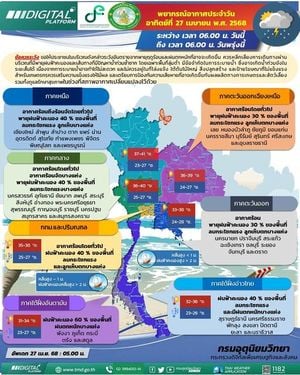In a significant blow to the ongoing battle against illegal IPTV services, a French deputy has publicly admitted to using unauthorized streaming platforms to access Ligue 1 matches. This admission comes at a time when the Professional Football League (LFP) and broadcasters like Dazn are intensifying their efforts to combat piracy, which has been a persistent issue in the world of sports broadcasting.
The LFP and Dazn have been grappling with the proliferation of illegal IPTV services for several years. These unauthorized platforms allow fans to view Ligue 1 matches without paying for subscriptions, undermining the financial viability of clubs that rely heavily on income from television rights. With millions of euros at stake, each act of piracy represents a significant challenge to the integrity of the league and its financial health.
During a recent public appearance, the deputy, whose identity has not been disclosed, openly justified his use of illegal IPTV by criticizing the high costs associated with legitimate television subscriptions. This unexpected support for piracy has raised eyebrows and drawn sharp criticism from football officials. "How can we expect fans to subscribe legally when public figures endorse illegal practices?" lamented a spokesperson from the LFP.
The deputy's remarks are particularly damaging, as they come at a time when the LFP and Dazn are striving to persuade fans to opt for legal viewing options. The admission not only weakens the position of broadcasters but also threatens the financial stability of French clubs. With fewer subscriptions, clubs could find it increasingly difficult to invest in new talent and remain competitive in the European football scene.
This incident highlights the critical role that public figures play in shaping perceptions around piracy. By trivializing the impact of illegal streaming, the deputy's comments may inadvertently encourage a culture of unlawful viewing, making it even harder for legitimate broadcasters to succeed.
Meanwhile, the fight against illegal IPTV services continues to be a priority for the LFP and Dazn. Both organizations are committed to raising awareness about the consequences of piracy and the importance of supporting legal broadcasting options. They argue that every subscription helps contribute to the overall health of the sport, allowing clubs to thrive and fans to enjoy a better quality of football.
In related news, Airtel has recently announced a reduction in the benefits of its Digital TV (IPTV/DTH) services. The company has updated its Airtel Black page, decreasing the value of TV channels offered in all Black plans from Rs. 350 to Rs. 260. This change follows a tariff hike for new connections and package prices that took effect on March 27, 2025.
The decision to cut benefits has sparked discussions among subscribers, as many are left wondering how this will affect their viewing experience. Airtel's move is seen as part of a broader trend in the industry, where companies are forced to adjust their offerings in response to changing market dynamics and consumer expectations.
The reduction in channel value and the recent price hikes may lead some customers to reconsider their subscription choices. In a market already plagued by the allure of illegal IPTV services, Airtel's changes could push more viewers towards unauthorized platforms, further complicating the fight against piracy.
As the landscape of television broadcasting continues to evolve, both the LFP and Dazn must navigate these challenges carefully. The need for a concerted effort to combat piracy is more pressing than ever, especially in light of recent developments that threaten to undermine the hard work of those trying to protect the integrity of the sport.
In conclusion, the recent admission by a public official regarding the use of illegal IPTV services serves as a stark reminder of the challenges faced by the LFP and Dazn in their ongoing battle against piracy. With the financial health of French football at stake, it is crucial for all stakeholders to work together in promoting legal viewing options and discouraging illegal practices.




